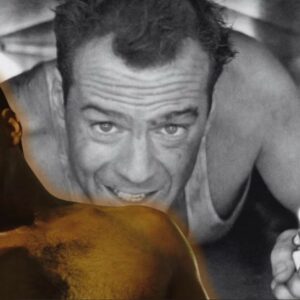Introduction: The Journey of Anna Mae Bullock, the Girl Behind the Name
Before Tina Turner was a global icon of unrestrained power and passion, she was Anna Mae Bullock—a young girl from Nutbush, Tennessee, molded by rural America’s hard realities and simple joys. Born on November 26, 1939, Anna Mae’s roots were in the cotton fields and small-town churches of the American South. These experiences became the soul of her music, fueling an unparalleled grit and resilience. Raised by her grandmother after her parents separated, young Anna Mae found comfort and inspiration in the church choir, where she first discovered the magnetic pull of performance. Music was woven into her being from those early days, inspired by gospel rhythms and the sultry blues that flowed through the Delta. Little did she know, this affinity for sound would catapult her onto the world’s biggest stages, changing the fabric of rock and roll forever.
Finding Her Voice: The Early Influences that Lit a Fire
As a teenager, Anna Mae Bullock moved to St. Louis, Missouri, in search of new horizons. It was here that her exposure to music deepened. Rock and roll, rhythm and blues, and the stirring jazz clubs of St. Louis offered a vibrant alternative to her early church influences. While she admired legends like B.B. King and Ray Charles, it wasn’t simply the genre that captured her heart but the raw emotion behind each note. At 18, she immersed herself in the city’s music scene, captivated by the possibilities that awaited her. Even at that age, Anna Mae had a voice unlike any other—a voice rich with longing, strength, and an earthy quality that would later define her sound.
The Turning Point: Meeting Ike Turner and Her First Breakthrough
Fate soon intervened in the form of Ike Turner, a musician with his own ambitions. Known for his band, the Kings of Rhythm, Ike was respected in the St. Louis music circuit. He was the kind of figure Anna Mae gravitated toward: charismatic, creative, and wildly talented. The initial meeting, however, was serendipitous. One evening, Anna Mae attended a show where Ike’s band was performing, and she couldn’t resist asking for a chance to sing. She got her shot during a break, and as soon as her voice hit the air, she had Ike’s full attention. Here was someone with undeniable presence—a young woman who, despite her nerves, was completely unafraid to let loose on stage.
Impressed, Ike Turner invited her to join his band, and she quickly accepted. In the Kings of Rhythm, Anna Mae was given the chance to hone her craft, to learn the ropes of the industry. She began as a backup vocalist but quickly moved to the forefront, with her voice adding a fresh dimension to the group’s music. This was Anna Mae’s first step into the professional music world—a space dominated by men and marked by long nights, challenging gigs, and endless travel. Despite the demands, she thrived, relishing the chance to sing for audiences and learn from seasoned musicians.
Becoming Tina Turner: Crafting an Icon
It was during this time that Anna Mae transformed into Tina Turner. Ike saw something in her—a raw energy that could transcend the backup singer role, someone who could match the unbridled passion he wanted for his act. So, with a simple stroke of pen and imagination, Anna Mae Bullock became “Tina Turner.” This new name wasn’t just a rebranding; it was the birth of a persona. “Tina” was powerful, resilient, and larger-than-life—a character forged from Ike’s vision and Anna Mae’s energy.
The creation of Tina Turner wasn’t without its challenges, however. Ike played a significant role in shaping her image, encouraging an explosive stage presence and intense vocal style that matched his own. He believed that Tina should project fierce independence, a fierce fire that would become synonymous with her performances. Though she initially struggled with the name and the high-octane demands of her new role, she eventually embodied the persona fully. The reinvention was pivotal, allowing her to distance herself from her roots and assume a role of a rock-and-roll powerhouse.
Electric Beginnings: Tina Turner’s First Performances and Musical Style
With the Kings of Rhythm, Tina Turner quickly became a showstopper. Her performances were electric, a fusion of raw soul, rhythmic R&B, and an edgy rock sound that mesmerized audiences. Her stage presence was unlike anything seen before—she danced with abandon, her voice resonating with an honesty and depth that seemed to shake the venue’s very foundations. Some early performances, particularly at the Club Imperial in St. Louis, would become legendary among the local music scene. Audiences watched with awe as Tina stomped, shimmied, and shouted her way through each set, her voice carrying an undeniable authority.
But it wasn’t just the power in her voice or her frenetic energy that captivated crowds. It was the profound emotionality she brought to each song. She could move from soulful ballads to heart-thumping rock numbers with a fluidity that defied expectations, showcasing her versatility and range. Tina’s performances were transformative, pulling listeners into her world and making them feel every note. In a time when female performers were often relegated to more passive roles, Tina was unapologetically bold and in control.
Early Career Challenges: Navigating the Industry and Personal Struggles
However, the path wasn’t always smooth. Tina’s early career was marked by struggles and sacrifices, particularly within the volatile relationship she shared with Ike Turner. As their popularity grew, so did the tensions behind the scenes. Ike was known for his rigid control over the band and Tina’s career trajectory, exerting influence over her performances and even her personal life. While this intense management style may have polished the act, it also introduced profound difficulties for Tina. The expectations were high, the workload unrelenting, and the emotional toll significant.
Additionally, the music industry itself presented challenges. In the 1960s, the music world was often skeptical of women—particularly Black women—who tried to claim a space in genres like rock and roll. Tina faced both subtle and overt racism, and navigating this landscape required constant resilience. Still, she never allowed these obstacles to stop her; she powered through them, determined to prove herself as a formidable artist in her own right.
A Meteoric Rise: Tina Turner Finds Her Fanbase
Despite the hardships, Tina Turner’s popularity only grew. Her fanbase began expanding beyond the local St. Louis scene to reach national audiences. People were drawn not just to her powerhouse vocals but to the charisma she exuded on stage. With hits like “A Fool in Love” in 1960, Tina and Ike’s act gained significant radio play and critical acclaim, and Tina’s reputation as an unforgettable live performer took root. The song’s success catapulted her into the spotlight, with fans captivated by her raspy, impassioned vocals and the energetic force she brought to each performance.
The music industry couldn’t ignore her any longer. Tina Turner was on her way to becoming one of the first Black women to break into mainstream rock and roll, a genre historically dominated by white men. Her stage performances were legendary, often described as frenzied and thrilling, and her sound—an unapologetic blend of rock, soul, and rhythm—was an irresistible draw for a wide variety of audiences. The success of her early music cemented her place in the industry, setting the stage for an illustrious career.
Legacy in the Early Years: Building the Foundation of an Icon
These foundational years were more than a prelude; they were the groundwork of Tina Turner’s legacy. The experiences, performances, and lessons learned during this time would define the artist she became. Her transformation from Anna Mae Bullock to Tina Turner symbolized more than a name change; it was a complete metamorphosis, one that took resilience, tenacity, and a defiance against societal limitations. The style and persona she developed during these early years—raw, powerful, and unapologetically authentic—would remain with her throughout her career.
Tina Turner’s entry into the music world set her on a path of reinvention, survival, and success that would inspire generations. Her early life instilled in her the perseverance needed to navigate an unforgiving industry, and her initial performances set the stage for the unforgettable legacy she would eventually create. Even as she ascended to rock-and-roll royalty, her origins remained central to her identity, imbuing her music with an undeniable authenticity that resonated deeply with audiences.
Today, Tina Turner is celebrated not just for her immense talent but for the spirit she embodied throughout her career—a spirit born from humble beginnings in Nutbush and ignited in the smoky clubs of St. Louis. Her early career, rife with challenges and triumphs, laid the foundation for a lifetime of artistic achievement. And though the journey was far from easy, Tina Turner emerged as a pioneer, a legend, and a voice that continues to echo across generations.





